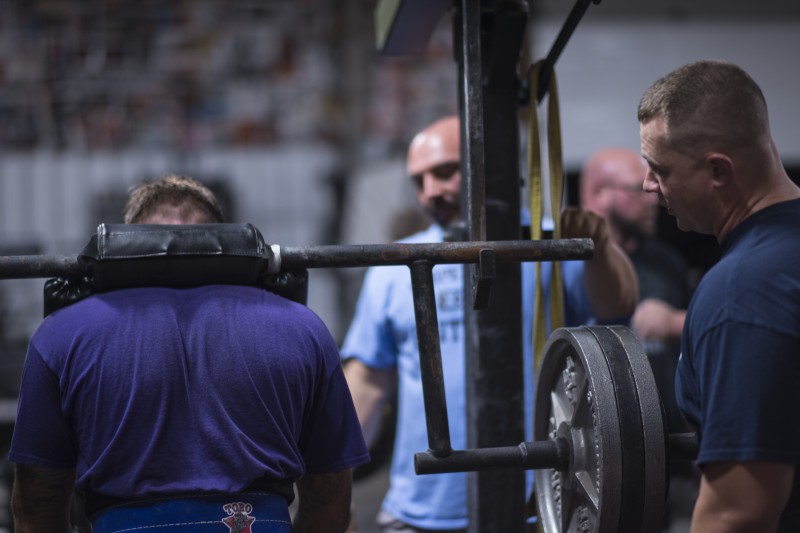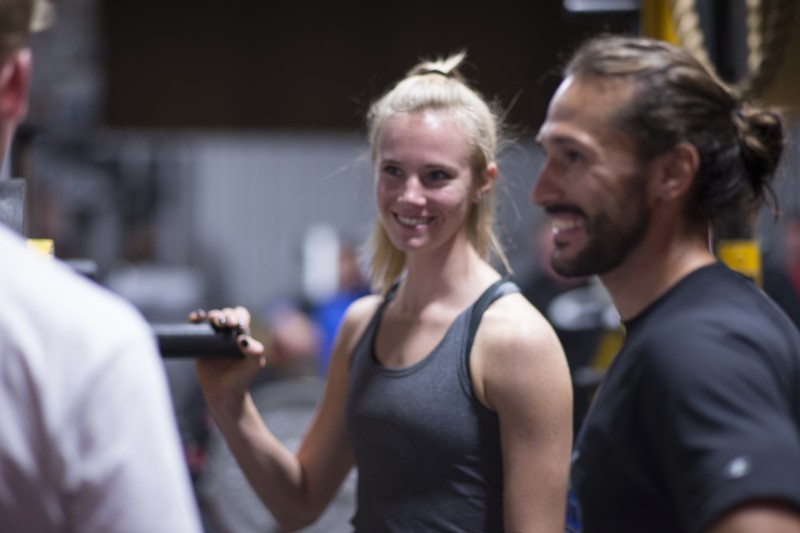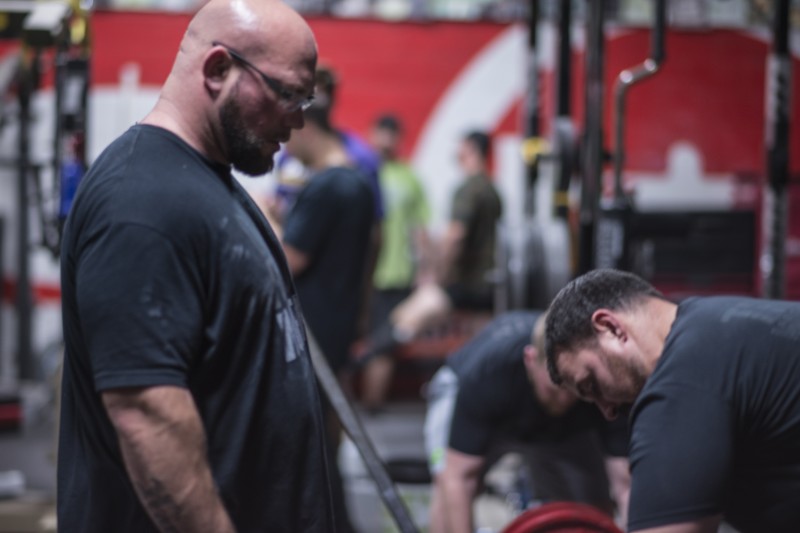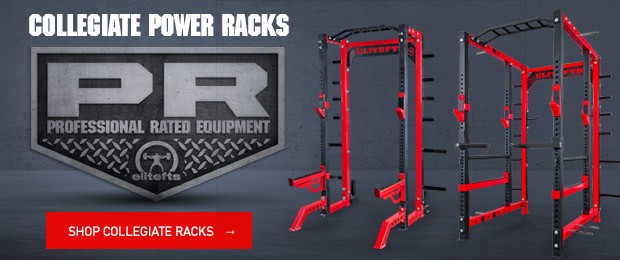
Recently on a Facebook post, a group of strength coaches was asked to give advice to coaches who are just getting into the strength and conditioning field. What would we want them to know or do? I think that it is a given that they should want to get all of the information possible — to acquire as much knowledge to do the best job that they can. I think that understanding life balance, having friends outside of the field, and having a hobby are huge. Einstein defined idiocy as doing the same thing over and over again and expecting a different result. Please look around at the conferences that you attend. How many do you see who are moving into retirement in this field? By retirement, I mean someone who actually retires as a strength coach and collects retirement, pension, etc. — not someone who gets out of the field because they can’t handle it. There are very few people who retire as strength and conditioning coaches.
LISTEN: NSCA's Coaching Podcast — Episode 9 with Dr. Bryan Mann
We often approach this profession as our forefathers: work long hours, be on the floor all day, never go home even when there is nothing going on, and sacrifice your health, worth, and life for the athletes. But where do we end up by doing this? As martyrs, for the most part. We all end up burned out and looking to change professions. Anyone who tries to not do this is called soft, in it for the wrong reasons, and a multitude of other things that may or may not be politically correct. As I have spoken about before, we need to change our views for our profession, because we are meeting the definition of idiocy. We do the same things over and over because coaches who have been in the field for 10 years tell us that those are the things that we are supposed to do, feel, think, and act — and they’re burning out and looking for a new job as it is.

We need to think about the quality of life and how to increase longevity in this profession. What we are doing does not lead to it. For those just getting into the profession, here is my advice to you.
Engage with People Outside Your Department and Profession
Get friends outside of your athletic department and profession. We need to be exposed to different people and different viewpoints. If all you do is hang out with people from the athletic department, you’ll all be feeling the same stresses and may not be able to relax. The pressures of winning are all-encompassing and can strangle you if you’re not careful. When you’re experiencing winning seasons, everything is great for everyone. When you’re losing, though, people want to point fingers and always look for answers by casting blame. When you’re in this sort of environment, it leads to a lot of stress and depression. If you have friends outside of your athletic department, you’ll have a sanctuary where hopefully no one cares about the game. You’ll also gain perspective of other professions.
For instance, many people have read the paper I wrote on the effects of academic stress on illness and injury in Division I football. What most people don’t realize is that this paper came about from hanging out with neurologists and neuroscientists. For one, our season wasn’t the greatest and we had a lot of injuries. The last thing I wanted to do was hang out with people who just wanted to talk about our football team. Fortunately, neurologists and neuroscientists don’t particularly care about this, and they also have insights that you wouldn’t get inside of our field. We were drinking and eating pizza at a local bar, and they were talking about a seemingly cyclical pattern of decline of their Alzheimer’s patients. I had been looking for patterns in our injury data; there had to be some causative factor for them, and while they were talking about god only knows what, I was stuck on date and thought, “What if it’s not any of the factors I’ve looked at, but some sort of pattern related to stress?” When I got home that night, I ran a frequency histogram and saw a pattern emerge that was congruent with the academic calendar.
Keep Your Hobbies
Don’t forget your hobbies. There are going to be times in this field where stress is inevitable and it will eat at you day or night. Having a hobby that pulls you away from the hustle and bustle of the working environment often allows your conscious mind to stop and your subconscious mind to answer the problem you’ve been looking for. I always recommend hobbies outside of our normal day-to-day routine. While a hobby of lifting weights sparked my career, it often would help lead to burnout by chasing bigger and bigger numbers on the squat and bench press.

What helped me the most to relieve stress was the decision to get into woodworking. I am unsure if it was the creation of something from nothing, the complexity of it all, or just the sheer fact that if I wasn’t fully engaged in what I was doing at the moment, I could lose a hand and quite possibly my life. But something clicked to make everything stop. It was only when everything stopped that I could focus on the here and now and know what to do with various situations I faced as a coach, be it from an issue of logistics, programming, athlete issue, coach issue, administrator issue, etc. It doesn’t matter if the hobby is woodworking, reading, cooking, or knitting, as long as it is something you enjoy and it makes everything else stop.
Remember Why You Started
Don’t forget why you got into this field. “If it’s because you love to lift weights or you love sport, you probably won’t make it for long,” was advice given to the staff from Pat Ivey. If the science is what lights you up, science might be where you ought to be. For me, I loved watching an athlete develop as a person and the role that I played in that. Whenever I remembered that and kept that as a central focus, it made everything else easy. The goal is to keep the goal the goal. If you look at barbells, exercises, sets, and reps as vehicles to achieve something greater, the debate about 4x6, 5x5, or 6x4 of front squat, back squat, or trap bar deadlift is irrelevant. The goal is to make the athlete a better person, and each of those is just a scheme for a given day rather than a religion to stand in the pulpit of. If your biggest concern is to worship at the altar of the squat then, my friend, you probably will be out of a job in a few years.
Get Away
Get away for a while. It doesn’t matter if it is a periodic vacation or if it’s getting away during the day or during the week, but get away from the weight room. If for no other reason, do it because most weight rooms are very dark and dingy places. It costs a lot of money to light them up well, and most weight rooms exist in interior areas that don’t receive natural sunlight. Getting outside can stimulate receptors in your eyes to enhance your mood. Beyond the day-to-day getting outside to enhance mood, you need to periodically get away. While vacations sound expensive, and they can be, they can also be very reasonable.
My wife is the queen of finding deals, and we all went to Mexico for a full week for about $1,500 at an all-inclusive resort. She did it from finding a deal on Groupon. Internet was not included, nor was travel to and from the resort, but once we were there, all was golden. I must say it was one of the best decisions of my life and something I’ll repeat again (when she finds a Groupon deal that good, that is).

I came back to work recharged and was able to think about things in manners that I hadn’t in a long time. It was tough for me to do but I only checked my email once every day, and I felt free as a result. There’s something about fresh seafood, the beach, the ocean air, and an open bar that helps people relax.
Listen to Your Athletes
Always remember to take the time to listen to your athletes. They will let you know more than you will learn from a book. Most athletes are very intuitive; they know what works for them and what doesn’t, how they like to be coached and how they don’t. If you have a good relationship with your athletes, you can talk to them and get great feedback on things. You may learn that their legs felt really heavy after a particular cycle, or that they hated doing a certain exercise but they only hated it because it was hard (and that was a good thing). You’ll also find out how they want to be coached by talking with them and observing them. Some athletes want a real rah-rah person, and others want to be told what to do. Even others want the hard coaching and negative reinforcement from time to time. Others want to be pushed relentlessly but in a positive manner.
If you watch how the athlete acts with their teammates and how they respond to what their teammates do to them, you’ll find out how to best get to them. If you hear them saying, “I’m having a hard time doing…” it may stimulate your brain as to a type of training or exercise that may be beneficial to them as well. Try things. If they work, great. If they don’t work, at least you know. On top of that, the athlete will know you’re trying with their best interest in mind and they’ll work harder for you as a result.
I think it’s high time that as a profession we work to improve our own situations rather than being martyrs. With martyrdom some people think they’ll go down in history, but history was written by those who have hung heroes, and no one ever learns the martyr's name. Instead, let us try to work together for the common good by doing things that will allow us to grow old and retire in the profession(s) we love. Let’s get to some definitions of intelligence rather than idiocy, and change the way things are done in our field. We can all become strong(er) of body as we become strong(er) of mind.











2 Comments